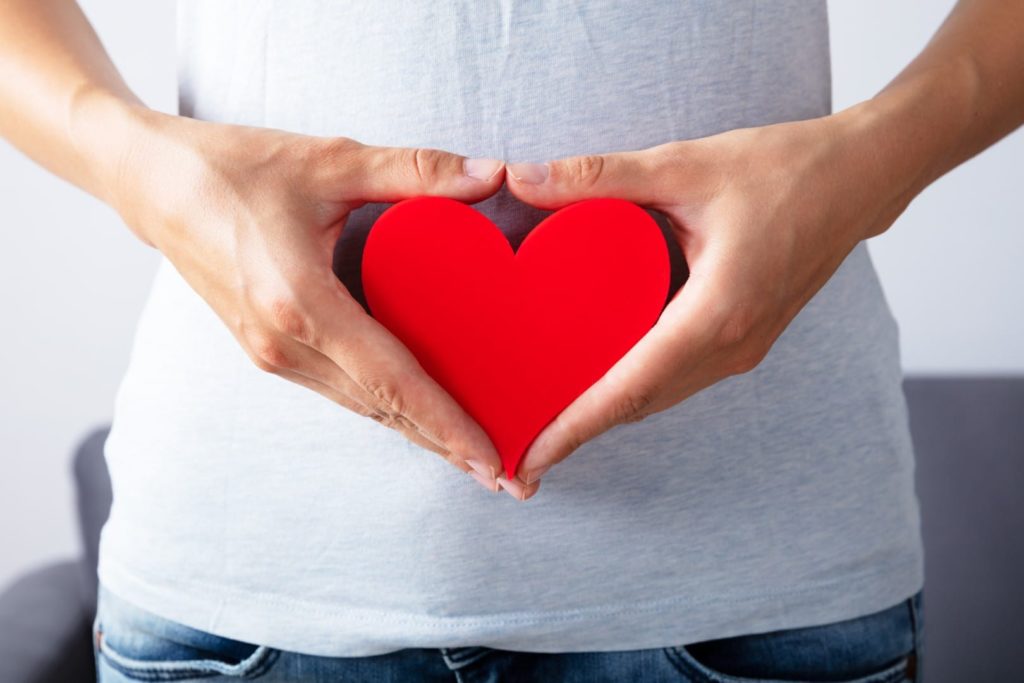We’ve all felt it – a sudden sharp pain in the tummy. Not very pleasant – and it can be worrying!
So, what’s going on in there, and what can you do about it?
The technical term for this feeling is “colon spasm.” It’s defined as a “spontaneous and sudden contraction of the muscles in your colon, frequently associated with IBS.”1 The colon is the part of your large intestine where the vast majority of the trillions of living bacteria inside your gut microbiome hang out.
How serotonin effects colon spasms
Think of your gut microbiome as a natural ecosystem inside you, filled with beautiful living creatures, like the Amazon rainforest. It’s all powered by something called serotonin. You may be familiar with serotonin as the “happy hormone,” – and it is! Inside your brain, serotonin creates the sensation of calm and happiness. But serotonin fills a lot of other important functions around the body as well.
Inside the gut, for example, serotonin is responsible for the easy, painless processing of food through your system. Serotonin makes the smooth muscles of your gut contract around the food, moving it along the digestive tube. People who suffer with gastrointestinal disorders like constipation and IBS often show serotonin abnormalities.2
Where does serotonin come from?
It’s made by some very special cells inside your gut, called EC cells, short for enterochromaffin cells. Imagine the EC cells like rare, beautiful Birds of Paradise in the Amazon rainforest – they sing the most beautiful songs of all! Only 2 % of your gut cells are EC cells, but those few tiny cells make 90% of your body’s serotonin.
Your serotonin system is fragile, and can be easily damaged. A course of antibiotics, a virus, an infection, too much sugar, environmental toxins or a period of stress can damage your EC cells. Once they are damaged, they can no longer do their job and produce the right amount of serotonin to make your smooth muscles contract properly around your food.
Serotonin is a “Goldilocks” proposition – we want just the right amount of it. Not too much, and not too little! Too much serotonin can lead to too much contraction – i.e., a colon spasm or sharp pain in the tummy. Too little will result in the system slowing down, and constipation.
So, what’s the answer?
How do we repair those EC cells, and get them singing inside our system again? Here’s a 5-point plan to ease tummy pains:
- Take a therapeutic quality probiotic + prebiotic combination, to restore the damage that’s been done to your gut microbiome, and get your serotonin system back in order. A probiotic will put the good bugs back in your system, and a prebiotic feeds those bugs. Chuckling Goat’s Pro-Prebiotic combo provides award-winning goats milk kefir and a complex prebiotic that combines all 18 of the exotic fibres required by your gut bugs to thrive, and it is part of the NHS-accredited mywellness program.
- Practice “Abdominal Breathing.” Place your hand above your belly button, just below your rib cage. Close your eyes and become aware of your breathing. Notice the way the air feels as it travels in through your nostrils and then out. Next, take a long, slow deep breath inward, bringing the breath all the way down into your abdomen. If you are doing this correctly, you should feel your hand rising as you inhale. When you’ve taken your breath inward, pause briefly and then exhale slowly through your nose or mouth, depending on your preference. Continue this exercise taking 5–10 slow, deep inhalations and exhalations. It is important to keep your breathing slow and rhythmic.3
- Try yoga. Increasing your physical activity and exercising more often may help keep your GI tract working at its best. Yoga is particularly recommended for relaxing colon spasm.4
- Eat more fibre. Fibre adds bulk to your stool. This can reduce the chances for loose stool or alternating bowel movement consistency. Fibre is found in fruits, vegetables, whole grains, beans, and legumes. Cutting back on fat may also reduce colon irritation. These changes may ease colon spasms and prevent contractions in the future.
- Remove irritants like gluten, cow dairy and sugar from your diet for 9 weeks. If irritants are present in the food, the enterochromaffin cells release more serotonin to make the gut move faster. Over time, this can cause colon spasm.














